Outnumbered: Are your bacteria controlling you?
This week, why we're passengers in our own bodies, outnumbered by our resident bacteria. We explore how these bugs can alter your brain and behaviour, and "trans-poo-sion": the poo-transplant process that might save your life! Plus, why the chances of ET existing have rocketed this week, and signs that birds count the same way we do...
In this episode

00:54 - Planetary system makes ET more likely...
Planetary system makes ET more likely...
with Dr Tiago Campante, University of Birmingham
The likelihood of the existence of extraterrestrial life - aliens! - increased  dramatically this week, when astronomers announced the discovery of a planetary system with 4 small rocky Earth-sized planets. Even more impressive is that they're over 11 billion years old. Previously, scientists thought rocky - and potentially life-sustaining - planets like these couldn't exist this early in the history of the Universe. Birmingham University's Tiago Campante described his discovery to Chris Smith...
dramatically this week, when astronomers announced the discovery of a planetary system with 4 small rocky Earth-sized planets. Even more impressive is that they're over 11 billion years old. Previously, scientists thought rocky - and potentially life-sustaining - planets like these couldn't exist this early in the history of the Universe. Birmingham University's Tiago Campante described his discovery to Chris Smith...
Tiago - In this paper, we announce the discovery of a fascinating planetary system with 5 Earth-sized planets that dates back to the dawn of the galaxy. The innermost planet has a size similar to that of Mercury and its size has been measured with the precision of only a few tens of miles. That's an impressive technological achievement. The 3 intermediate planets are the size of Mars and the outermost planet is slightly smaller than Venus.
Chris - When you say "the dawn of the galaxy", how old is that and which galaxy are we talking about here?
Tiago - We're talking about our own galaxy, the Milky Way and the age of the system has been estimated at an impressive 11 billion years. The universe itself has an estimated age of 13.8 billion years, so these planets existed when the universe was less than 20% of its current age.
Chris - Had we previously not believed that small rocky planets like the Earth would come along quite so quickly in the universe's evolution? Is that why this is a game changer, what you found?
Tiago - Absolutely. Only a few years ago, we thought that formation of planets around old stars was unlikely to happen. That's because old stars miss or are less abundant or their environments are less abundant in heavy metals, think of iron for example, and those heavy metals are the building blocks to planetary formation. So, it would be expected that the formation of a planetary system around such an old star would be a rare event.
Chris - Why are those very early stars and therefore, the planets that might or might not form around them devoid or lacking in these metals?
Tiago - Very good question. So, the primordial universe was composed of hydrogen and helium. It was only in the interior of first generations of stars that heavy elements were formed. When these stars died and exploded as supernovae, they released these first synthesised heavy elements into the interstellar space and then the following generations of stars and planets could already use those.
Chris - Because I suppose this suggests that planets of the sort of size, scale and possibly the environment of the Earth could've existed for a lot longer then than we had previously anticipated.
Tiago - Yes. Never before had planets this small been found around a star this old.
Chris - How did you find them?
Tiago - To find these planets, we needed to monitor this particular star with the Kepler satellite. The Kepler satellite collected 4 years of photometry, basically measuring the changes in brightness of stars. When planets cross in front of the apparent disc of their stars, there is a slight dimming of their brightness, and that's how we detected these planets.
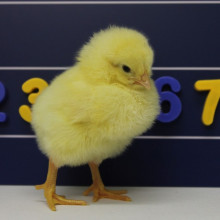
04:40 - Chicks count from left to right
Chicks count from left to right
with Dr Hannah Rowland, University of Cambridge
Humans do it. Primates do it. And now it's been found out that birds can also do it: 3-day-old chickens have been shown to order numbers - low to high - from left to right - just like on a ruler! The findings, published in the journal Science, could indicate that this 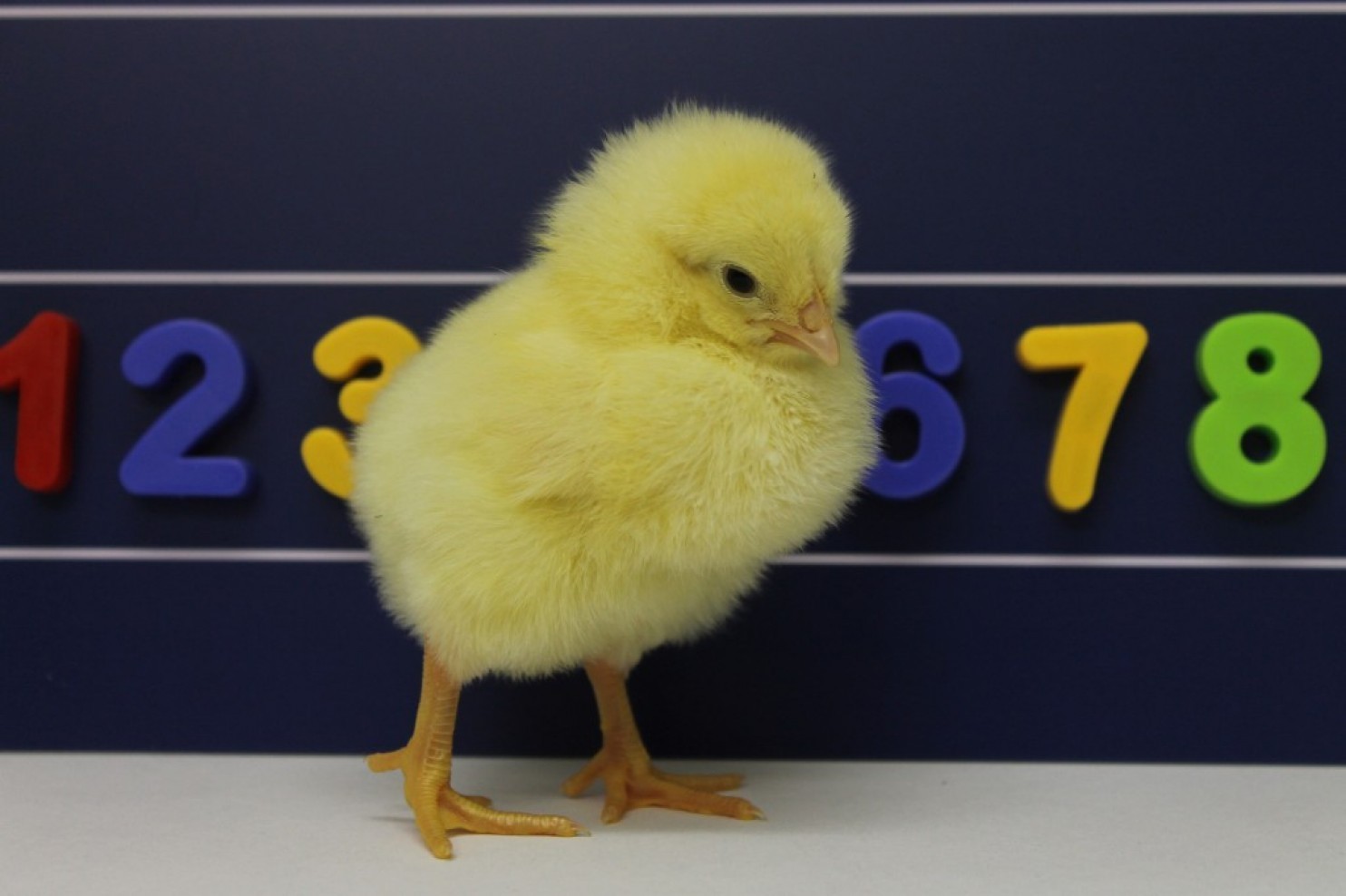 numerical ability is a feature of evolution, rather than culture - and could help explain why we pay more attention to things presented on our left... Zoologist Hannah Rowland from the University of Cambridge put Graihagh Jackson's numerical skills to the test...
numerical ability is a feature of evolution, rather than culture - and could help explain why we pay more attention to things presented on our left... Zoologist Hannah Rowland from the University of Cambridge put Graihagh Jackson's numerical skills to the test...
Hannah - Plenty of people have been very interested in whether counting is a uniquely human behaviour. Lots of research has been done to figure out if animals have a sense of number. A really famous one that all students are taught is that peahens like to mate with peacocks that have about 150 eyes in their tail. If you take about 5 eyes out, the male peacock becomes far less attractive to the female. Now, people might think she is standing there going, "1,2,3,4..., 149, 150." But to actually tell the difference between a tail that has a 150 eyespots and 145, she doesn't have to count. So, she can pay attention to the asymmetry of the tail, or the density of spots in their tail. And so, while it might look like she's counting, she doesn't have to actually count at all.
Graihagh - Is there any way that you can tell if an animal can count because I imagine it's quite hard to disentangle what you're talking about and also, the whole, 1, 2, 3, 4, 5, 6, 7, 8?
Hannah - So, to actually test whether animals can count, you have to look for whether they can pay attention to the order of numbers or dots, or symbols. And there's lots of research been done on this with primates.
Graihagh - What about birds?
Hannah - Birds can certainly tell the difference between patches that have a lot of items or fewer items, but that's not counting as such. That's more numerical discrimination.
Graihagh - Given that the paper looked at domestic chickens, we thought it only appropriate to go and see some chickens ourselves. The only problem was, they were very scared of us. So, we had to feed them a bit of my pack lunch to get them to say hello.
"Hello."
"Now, look they're eating the peas."
Graihagh - So, my lunch didn't go to waste then. What are these guys called? Are they named after the colours because they're beautiful colours? You've got a grey one and sort of very warm orange then a light orange and a black with flex of teal almost.
Hannah - So, the black one is called Brumble and the grey is called Teazel and the yellowy and the brown ones are Heather and Bracken. Yeah, it's after their colours.
Graihagh - Let's talk a bit about this paper. What about the idea that if they can count, there is a tendency to count from left to right, just like humans do?
Hannah - So, this paper that's come out in science, it's based upon research that actually was right back in the 19th century. So, Francis Galton was one of the first people to realise that when we think of numbers, we generally order them on a horizontal line so across the page and usually from left to right. So maybe I can actually get you to do it. So, think of a ruler. Think of where number 6 is in the position on the ruler. Now, I'm going to tell you a number. If the number is smaller than the number 6, I want you to raise your left hand. If it's larger than the number 6, I want you to raise your right hand. So, think of number 6, 8. Now...
Graihagh - I raised my right hand. I did it right?
Hannah - You did and you were really fast. Now, think of number 6. If the number I say is smaller, I want you to raise your right hand. If the number is larger, I want you to raise your left hand. 4...
Graihagh - I did have to think about it this time though. I raised my right hand, but I did have to think about it.
Hannah - Exactly! That's because it's much easier for people to order things that get larger so that grow in magnitude from left to right.
Graihagh - And that's the same in chicks as well then.
Hannah - Yes. It turns out that they show the same behaviour.
Graihagh - Imagine you're in a box. There's a card in the middle of the box which 5 dots on it. Behind it is a tasty treat. This happened again, and again, and again. A card with 5 dots is always in the middle. Then one day, there's two cards - one on your left, one on your right, both have two dots on them. Which one do you look behind for your tasty meal worm reward? Well, the chicks nearly always picked the one on the left. Maybe chicks are all left-winged. So, in the next tests, they added two cards with 8 dots on them - one on the left, one on the right, same layout, different dots. Guess what? They looked behind the right card for their reward. This shows that chicks like humans associate lower numbers on the left and higher numbers on the right.
Hannah - In humans, we know that this is because the right hand side of our brain is very dominant. So, we pay attention to the left hand side of pictures. This seems to be the same in chickens as well.
Graihagh - I find this quite surprising that we share this attribute with chicks because surely, that means that the reading of numbers from left to right isn't a cultural thing. It's built in us because we split from birds 300 million years ago or something. Why might we share this with birds?
Hannah - Well, I think that's a question that those researchers are still going to try and find out. It may be that we have some very ancient shared ancestry where the wiring of our brain is very similar way back in evolutionary history.
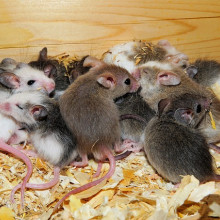
10:46 - Stress during pregnancy harms a foetus
Stress during pregnancy harms a foetus
with Owen Vaughan, University of Cambridge
When an animal is pregnant the developing baby exchanges nutrients and waste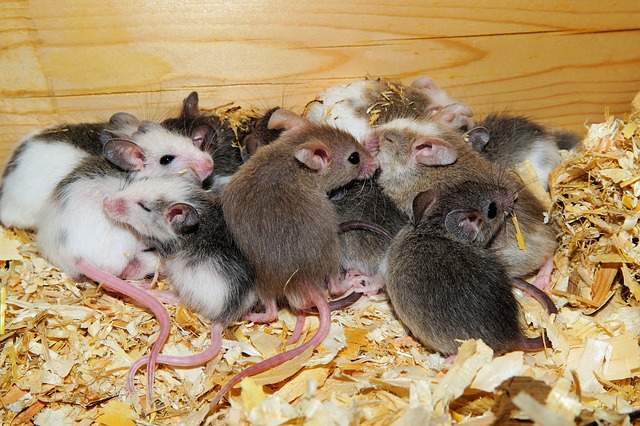 products through its umbilical cord and placenta, which attaches to the wall of the mother's uterus. But, if the mother is exposed to stress the placenta works less well, which can affect the growth of the baby, as Cambridge University's Owen Vaughan explained to Danielle Blackwell...
products through its umbilical cord and placenta, which attaches to the wall of the mother's uterus. But, if the mother is exposed to stress the placenta works less well, which can affect the growth of the baby, as Cambridge University's Owen Vaughan explained to Danielle Blackwell...
Owen - The aim of the study was to look at how glucocorticoids, which are a stress hormone secreted both in the mother and the foetus, what happens when they're raised during pregnancy. What we found was that when these glucocorticoid levels are raised in the pregnant mother, the ability of the placenta to transport glucose to the foetus is reduced.
Danielle - How did you conduct the study?
Owen - So, the study used mice. The mice were given corticosteroid in their drinking water for 5 days. We then used a tracer technology to measure the amount of glucose passing across the placenta.
Danielle - What direct effects did this have on the foetus?
Owen - The foetus itself was smaller at the time we conducted the study which was towards the end of pregnancy. In humans, being a smaller baby, puts you first of all had greater risk of complications in the immediate postnatal period. But also, increases your life-long risk of metabolic disease or things like type 2 diabetes and obesity.
Danielle - You mentioned in your paper that some of the mice given the stress hormone were overeating. How does this affect the amount of glucose that then can pass through the placenta?
Owen - The glucocorticoid treatment also increased the amount of food that the animals ate each day. But what we found was that if we prevented them from overeating, we no longer saw the changes in the ability of the placenta to transport glucose. So clearly, there's an interaction between the two on stress levels and nutritional intake.
Danielle - Is it possible that we can then remove some of the harmful effects to the foetus by controlling their diet instead of maybe controlling the stress hormones?
Owen - What this might mean is that we can limit the effects of stress on the foetus by manipulating the maternal diet. So that for any particular stress hormone profile, there might be a most appropriate diet for the mother during pregnancy.
Danielle - So far, all this work has been carried out in mice. Do you see this applying to humans? Is there a similar mechanism that happens in humans with elevated stress hormone levels, do we think?
Owen - Well, certainly glucocorticoids are sort of a central signal of many different sorts of stress. In humans, they are raised in response to more psychosocial stresses but also, things like nutrient deprivation.
Danielle - Is this something that we could possibly then use as a drug target if there are mothers that are going through prolonged periods of stress and have prolonged elevated stress hormone levels? Is this something that maybe we can therapeutically target to remove these adverse effects?
Owen - In particular, we found that when the stress hormone levels are high in the mother, the expression of a particular gene called red1 in the placenta is increased. So, if we can somehow alter the way that responds to stress or nutrients in the mother, we might have a way of protecting placental function from changes in the material environment.
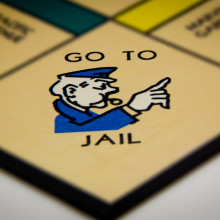
14:37 - Punishments don't deter psychopaths
Punishments don't deter psychopaths
with Dr Nigel Blackwood, Kings College London
One in five violent offenders are what psychiatrists would describe as psychopaths. They're callous, unemotional and from childhood show violent tendencies. They're also responsible for a disproportionately large amount of crime. 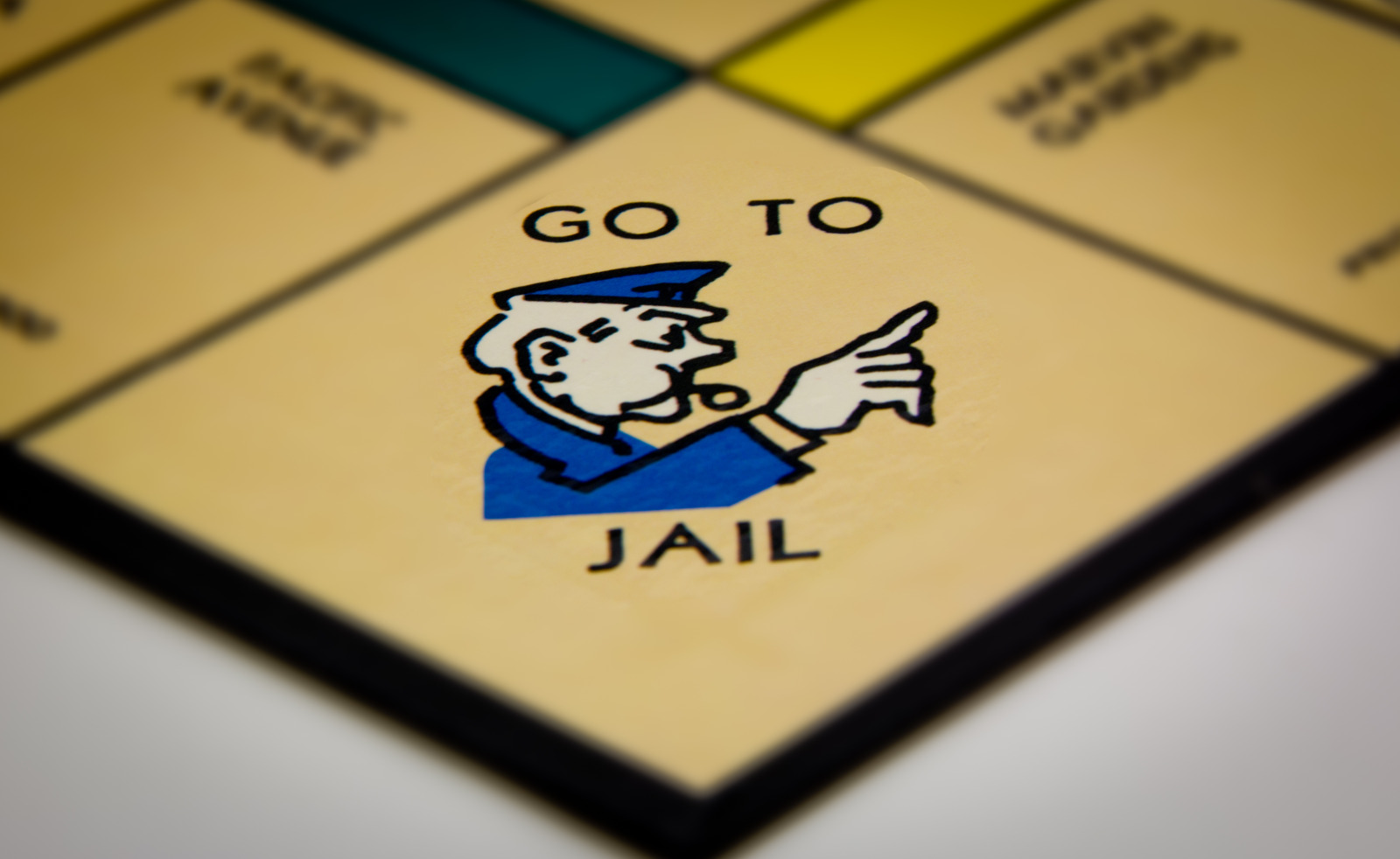 But a big problem dealing with psychopathic criminals is that punishments - like prison - usually offer no deterrent to re-offending. Now Nigel Blackwood and his team at Kings College London, have discovered that this may be because their brains are wired up differently. He explained to Kat Arney what defines a psychopath...
But a big problem dealing with psychopathic criminals is that punishments - like prison - usually offer no deterrent to re-offending. Now Nigel Blackwood and his team at Kings College London, have discovered that this may be because their brains are wired up differently. He explained to Kat Arney what defines a psychopath...
Nigel - Psychopaths are individuals who have been involved in anti-social behaviours across their lifespan. They're conduct disordered as kids with what we call callous-unemotional traits and grew up to be adult psychopaths. So, in common with the broader anti-social group, they have a lifespan history of impulsivity, risk-taking behaviours, poor decision-making. So, they lack in empathy. They're callous. They're interpersonally manipulative. They use aggression in an instrumental way to get what they want.
Kat - What's the wider impact to society of these kinds of people?
Nigel - So, the broad anti-social group, a small number of men are responsible for the vast majority of offending behaviours in our society today. That psychopathic subgroup are likely to start offending earlier have a higher frequency of offending behaviours, and are most likely to re-offend when they're released from prison. So, that's a very important group to try and intervene in.
Kat - How did you go about in trying to study this group of people in more detail?
Nigel - So, there's plenty of studies that look at the differences between psychopath's brains and normal subjects in the community. But if we really think there's something important about psychopathy, we've got to show that there's differences between people who are antisocial and psychopathic and those who are antinsocial are not psychopathic. So, we looked at 50 men, some from the community, and the vast majority of coming out of prison and to being looked after in probation services. We made sure that they had violently offended in the past, so they've been involved in murder, attempted murder, GBH, rape, and then decided whether they were or were not truly psychopathic. And then we looked at the differences in those three groups in our brain scanner.
Kat - What did you find that was different between them?
Nigel - Well, I suppose there's a folk idea that the psychopathic group don't respond to punishment, just because there's reduced sensitivity to punishment. They have years of being punished by their parents, by their teachers, by the prison system, and they just don't respond anymore. But that isn't what we found. So, we found at the moment at which the psychopathic group were punished in a task which involved reward and punishment, they showed increased activity in areas that track such information. So, they're not just reduced in the sensitivity to punishment. There's something fundamentally different about the way they process punishment information.
Kat - To play devil's advocate slightly, if this is something that's just intrinsic in the way someone's brain is wired up, you're wired to be a psychopath, why don't we just keep them imprisoned forever?
Nigel - Well, we know that this subgroup are more genetically vulnerable, but we shouldn't pessimistic at this stage that these kids are doomed from the womb and we've got to preventatively detain them. What we need to be trying to fix is changing the treatment programmes. And I think we can maintain at least some sense of therapeutic optimism about our approach to such people.
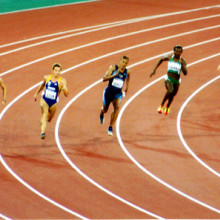
18:02 - Time of day affects athletic performance
Time of day affects athletic performance
with Dr Roland Brandstaetter, University of Birmingham
Athletes competing at the wrong time of day could be missing their best by up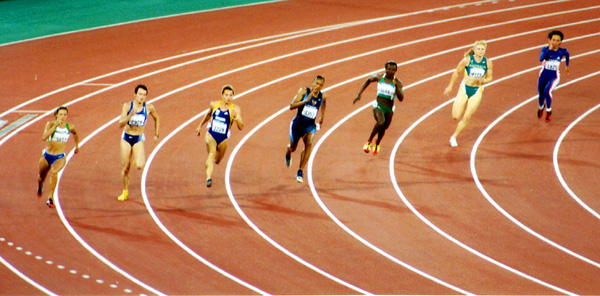 to 26%, according to a new study. By comparing the sporting performances of "owl" athletes with more "lark"-like early risers, Birmingham scientist Roland Brandstaetter has shown that correctly syncing your race time with your body clock can make the difference between a gold medal and not even qualifying, as he explained to Chris Smith...
to 26%, according to a new study. By comparing the sporting performances of "owl" athletes with more "lark"-like early risers, Birmingham scientist Roland Brandstaetter has shown that correctly syncing your race time with your body clock can make the difference between a gold medal and not even qualifying, as he explained to Chris Smith...
Roland - What we have found is that the performance of individual athletes is different between what we call human owls and human larks. That means people with different types of body clocks. Early risers, the ones that we call larks, who get up early in the morning and want to go to bed early, have their performance maximum around midday while those that wake up late and go to bed very late, so-called 'owls,' have their performance maximum in the evening, at around 8 o'clock. What we also found is that performance difference of an athlete between their morning performance and their evening performance can be as pronounced as 26%, which is huge in the sports world.
Chris - Yes, and indeed, that's going to make the difference between whether someone even qualifies to compete in the 100 metres compared with winning the 100 metres, isn't it? I mean, it's a massive difference.
Roland - Absolutely. I mean, if you look at the London Olympics in the 100-metre men's race, the time difference between the gold medal and the last one in the race was only 5%.
Chris - How did you arrive at this conclusion? What did you actually do to discover this?
Roland - What we did is, we looked at a certain number of competition level athletes and let them complete the questionnaire that asks for many different parameters related to their sleep-wake rhythms, training schedules, eating habits, etc. And then we classified these individuals into the larks, intermediate ones and owls. Then we selected athletes from this pool and conducted BLEEP test system. That's a standard fitness and performance test at 6 different times of day with them and found that they are significantly different between owls and larks.
Chris - Why do you think you see this very dramatic difference between these different types of people and how they perform at different times of the day? How do you account for this?
Roland - The reason why we see these differences is, because these individuals have different body clocks. The early types, the larks, have faster running body clocks and you have to bear in mind that the body clock controls more or less, all of our physiology, everything. For an athlete, this is particularly important because things like how sugar is utilised by the muscles, how alert a person is, and of course, how physically active we can be depends very much on the state of wakefulness. So, if you are fully awake because your biologic clock lets you then you can achieve your personal best performance.
Chris - Can you see a time then when athletes are going to be profiled and people are going to say, "Well, let's do a test on you. We'll see whether you're an early type or a late type" and then people may be selected or dropped for games, matches and so on, based on what sort of body clock type they've got, and when the match is going to be played?
Roland - I think it might become a very important aspect in the future. What you have to bear in mind is the different sports have their different times of day. So, very often, you see marathons take place in the morning. But then we look at football, that mostly takes place in the afternoon and the evening. And of course, football is a very good example actually because a lot of the premier league games happen in the after, while if you play champion's league, you have to be at your personal best performance in the evening. So, what I can imagine is that by profiling individuals and knowing about their body clocks, athletes and coaches can have a huge advantage. We do not think in terms of individuals being dropped. People can actually work on optimising their performance. But of course, if you look at it from the point of view of a coach, if you are football coach in the premier league and you have equally skilled players that are early types and late types, you can choose maybe more of the early types for an afternoon match but more of the late types for an evening match. Again, it would have a huge advantage.
Chris - So, what type are you, Roland? Do you write your best papers and do your best research in the morning, or does it come to you late at night?
Roland - I'm an intermediate type. But since I know very well how my body clock works and since I know exactly how to speak to my body clock, I can very easily in-train myself, shift myself to become an owl or to become a lark, depending on what the requirements are.
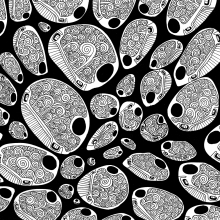
23:24 - What is the microbiome?
What is the microbiome?
with Ed Yong, Science Writer
Do you consider yourself human? We hate to break it to you, but your human cells 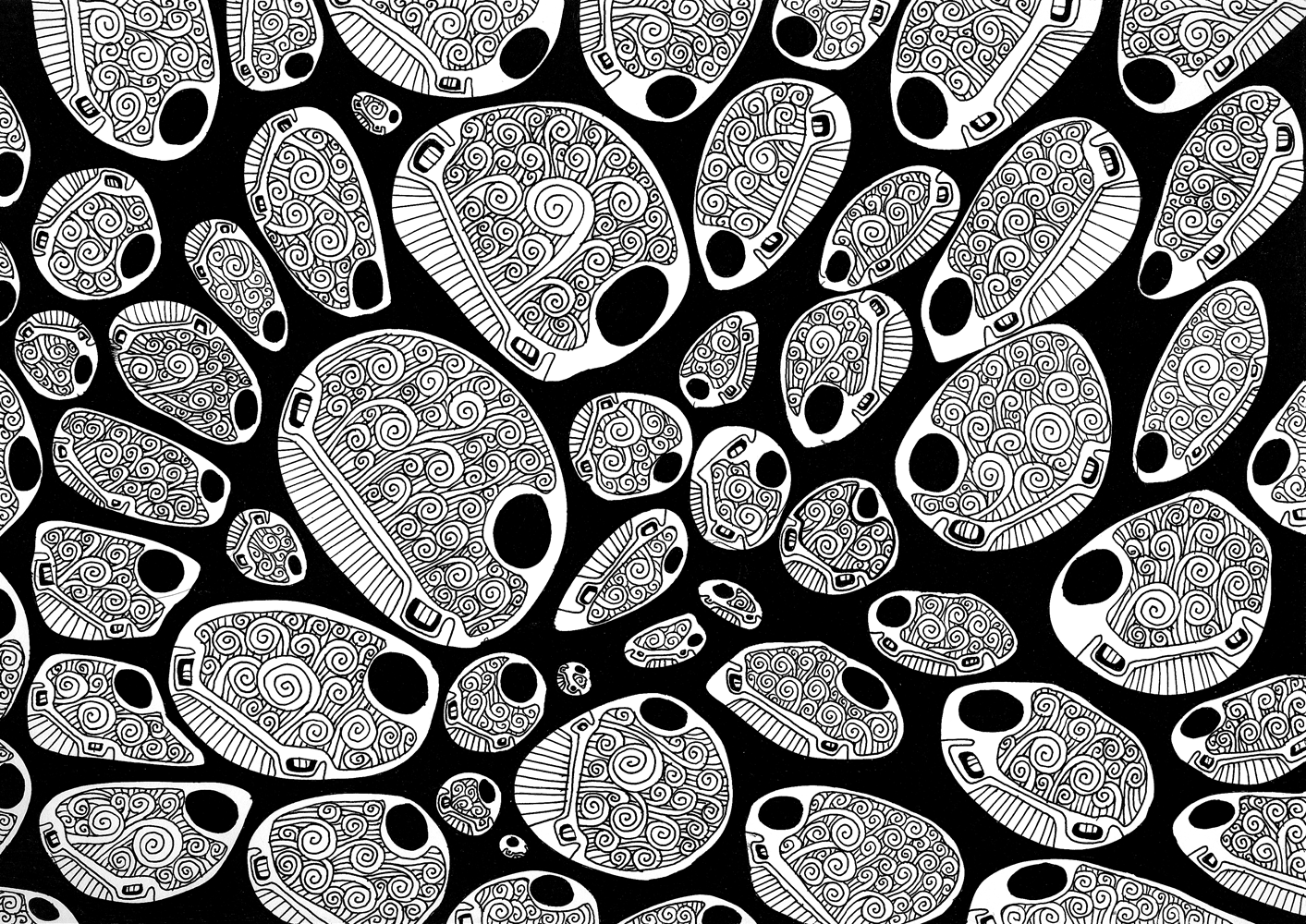 are outnumbered by the millions of microbes living in you and on you.
are outnumbered by the millions of microbes living in you and on you.
They're what are known as our microbiome, and recently researchers have started to realise that these multitudes may be having an effect on our health, weight and even mood.
To learn more about these microbial friends, how they get there and what they're doing, Kat Arney spoke to science writer Ed Yong to get the basics...
Ed - People think of themselves as individuals, as a single animal. But actually, every one of us is an ecosystem - inside our bodies and on our skins. We have trillions of bacteria and other microbes that live with us, that influence our lives. They aren't just mere hitchhikers or passengers. They are integral parts of our bodies. They do things like help us to digest our food. They protect us from other deadlier microbes that threatened to cause diseases. They help to shape our immune systems and perhaps even our behaviour. They're very much a part of us.
Kat - I guess that bacteria have a bit of a bad rap because we always think of them as causing diseases. How recently did we get this alternative view of them that actually, they may be a really important part of our lives?
Ed - I think people have known that for actually a very long time, but it's been quite a neglected concept. So, even people like Pasteur had some appreciation that microbes could play a beneficial role. But you're right that we've come to think of microbes generally as causes of diseases. So, you get endless news stories saying, "Your mobile phone or your keyboard has more bacteria on it then a toilet seat. The implication there is that bacteria are a sign of death and filth that there are bad things that you want to get rid of and destroy. Whereas that's just not true. There are obviously microbes that make us sick. But there are probably many more that actually help us or at worst, are completely neutral. Bacteria had the planet to themselves for billions of years before any human or any - even an animal came on the scene. So, we live in their world and we have evolved in their world.
Kat - If you say that bacteria are found all over me, my skin, in my gut. Where did they come from?
Ed - It's generally thought that people are born sterile so that the womb is a sterile bubble in which it's just the baby. Now, that may or may not be completely true, but the fact remains that most of a child's bacteria are seeded into it when it emerges from its mother. So, not to put too fine a point on it, when your born, your slathered with microbes which then become yours. They colonise the rest of you. They get in your mouth. So, you get them from your mum basically. A lot of animals do that. some inherit microbes while they're still an unfertilised egg. Some get them at the point where they're born. Others eat them from things that their mothers provide.
Kat - We see in the news there are good bacteria and bad bacteria. Is this a fair definition? I look at my hand. It must be covered in bacteria. How do I know which one's a good and bad?
Ed - So, I think some bacteria, you could reasonably classify as bad. So, Yersinia pestis which causes plague is probably bad, Bacillus anthracis which causes anthrax, again, I think you could call that bad. But in most cases, those definitions don't really work. Say, the bacteria that live in our gut, they play important roles in our lives, help to digest our food, but they can also revolt. If they get across the lining of the gut and enter the bloodstream, they can cause really strong debilitating immune reactions. so, the same bacteria can be good in one setting and if you translocate them by about a few millimetres, they can suddenly be bad and dangerous. So really, these concepts of good and bad, they are dependent on place and time, and context.
Kat - And recently, as we've heard a lot about gene sequencing and people reading the gene sequences, the DNA sequences of different bacteria, the microbiome, what sort of stuff is starting to emerge from these studies because we hear a lot about them and it's hard to know what do they mean?
Ed - It's clear and increasingly so that bacteria do play important parts of our lives and I don't think it's hype to say that and to emphasise it. we are used to thinking of ourselves as individuals that we live under our own steam, we behave under our own wills, we grow up from a single egg into this complicated organism under instructions from our own genomes. All of those things are complicated by the presence of bacteria. So, we know that bacteria shape our development, they shape our behaviour, they shape our physiology, but we also know that bacteria affect our health. So, lots of studies have compared healthy people and people with diseases or various health problems from obesity to diabetes to colon cancer, and compare to their microbiomes to those healthy people. And they found differences. Now, what this means is still unclear I think. In some cases, we've got better evidence that the bacteria are behind those conditions. But in others, it's not clear whether the changes in the microbiome are just going along for the ride, whether they're the results of the condition rather than the cause of that.
Kat - Are someone's gut bugs making them fat or because they're fat, they have different gut bugs?
Ed - Exactly or probably a cycle of both of things. I think that's where there's currently a bit of hype. Microbiome has been linked to virtually every health condition under the sun now. People have written reviews saying, maybe the microbiome is behind religious behaviour or all sorts of aspects of human culture and behaviour.
Kat - It's just the bug.
Ed - That's right. everything is to do with microbiome. why did I feel sad on Tuesday? Microbiome! why do I crave a coffee right now? Microbiome!
Kat - We're just a vehicle for our bacteria.
Ed - We are and I think - well obviously, we're not. I think this is where the hype around the science goes too far. We need to drain it back in. what we need now is some careful science that looks beyond just comparing patterns in different people and establishes things like causality. What is actually result of the bugs or vice versa and how did they affect our health? What is the mechanism behind these things?
'I Contain Multitudes' by Ed Yong is out in 2016.
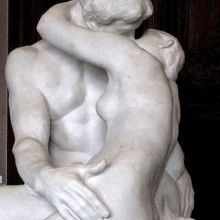
30:41 - How many bacteria accompany a kiss?
How many bacteria accompany a kiss?
with Dr Marcello Riggio, University of Glasgow
 Your gut begins with your mouth. And Glasgow University's Dr Marcello Riggio looks at the bacteria that live there and what happens when their numbers go off kilter, as he explained to Chris Smith...
Your gut begins with your mouth. And Glasgow University's Dr Marcello Riggio looks at the bacteria that live there and what happens when their numbers go off kilter, as he explained to Chris Smith...
Marcello - The mouth is a very, very bacteria rich environment and indeed, compared to other parts of the body, one might be surprised to know that it is really one of the most diverse parts of the human body. There are approximately a thousand different bacterial species in the human mouth although most of us usually carry only up to 75 different types of bacterial species. The mouth is a wonderful place for bacteria to grow. It's got fairly neutral pH and it's got a temperature of about 36 degrees. So, it really is a perfect environment for bacteria to grow in.
Chris - Food on tap as well.
Marcello - Absolutely. Bacteria can gain their food from the saliva of the host and also, food debris from in-between the teeth, which is why is very good to floss your teeth to minimise bacterial metabolism, particularly of the bad bacteria which we mentioned earlier.
Chris - Now, when you talk about flossing of teeth, I think this is an important point because there's an old saying amongst dentists that you don't need to floss all your teeth, just the ones you want to keep. But equally, scientists certainly in New Zealand to start with, now around the world finding that if you have bad gum disease, surprisingly, this is also linked to heart disease.
Marcello - Yes. Gum disease comes in two forms. Essentially, the less severe one is called gingivitis which is an inflammation of the gums and the gums bleed, and affects most of us from time to time. We brush our teeth and we spit out a little bit of blood. But the more advance form of gum disease is known as periodontitis and this is far more severe form if gingivitis isn't treated by good oral hygiene, flossing, use of mouthwashes and brushing their teeth. You will have periodontitis which if not treated, will result in destruction of the surrounding tissues and bone and eventually, tooth loss. Now, this is a particular problem due to the fact that people with periodontal disease, have much higher incidents of more serious disease because the bacteria from the mouth in people who've got gum disease can get into the bloodstream and are carried through the blood to other parts in the body where they can cause life threatening diseases. Things such as heart disease, stroke, diabetes, dementia, rheumatoid arthritis, even premature birth, and endocarditis which is an infection of the underlining of the heart and the heart vowels. These have all be associated with the presence of gum disease and particular, periodontitis the more severe form.
Chris - The thing is though that every time someone cleans their teeth, they're going to get little shower of bacteria going around in the bloodstream, aren't they? So, there must be a difference between that manifestation of a few bacteria going in the blood and this more pronounced form of inflammation that seems to be linked to things like heart disease and stroke.
Marcello - Yes, that's correct. We have what are known as transient bacterium. This is the term that we use for bacteria getting into the blood. But yes, even eating an apple or brushing teeth sets up a very sort of transient and small number of bacteria that do enter the bloodstream. But in small numbers, the immune system can cope quite well with those foreign bacteria in the bloodstream and they're eliminated. The problem is, when you have much more serious diseases such gum disease, periodontitis, and you get larger numbers of bacteria which enter the bloodstream, that tends to overwhelm the immune system. Particularly removing a tooth or having various forms of dental treatment, root canal treatment, etc. These are much more serious levels of bacteria entering the bloodstream which are not eliminated so easily by the immune system.
Chris - Apart from flossing your teeth, what can you actually do to keep the mouth a healthy place. Can we, for instance do for the mouth what probiotic yoghurts do for the intestine.
Marcello - Yeah, probiotics have been promoted and we see adverts for leading brands on the TV very frequently. Having said that there are some scientific studies that have questioned recently the effectiveness of probiotics. There is evidence to suggest that probiotics can boost natural immunity because they introduced good bacteria both into the gut and also, into the oral cavity. It's far more difficult to have a stable introduction of the good bacteria present in probiotics, for them to actually colonise or set up home in the oral cavity.
Chris - Now obviously, Valentine's day is not far away. When you snog someone, are you quite literally and it's quite funny because our producer Georgia has written here, "Are you doing a foreign exchange programme for your microorganisms with the person that you're getting jiggy with?"
Marcello - Very much so and I don't want to put people off kissing but a recent study did show that around 80 million bacteria are transferred in a single 10-second intimate kisses the researchers succinctly put it. What these researchers did, they looked at couples and they gave one member of the couple a probiotic drink containing easily identifiable bacteria. They looked at the populations of bacteria on the tongue and saliva samples before and after the kiss. They showed that the bacteria in the saliva of the partner who was accepting the saliva in effect, those bacteria within a probiotic drink, rose three fold whereas the bacteria on the tongue remain much more stable. And also, what they found was, the more often a couple kiss, the more similar the bacteria that they shared in the saliva samples. Obviously, if you live with somebody, there are various mechanisms that exist for sharing of bacteria. You've got shared lifestyle and similar perhaps dietary and personal care habits.
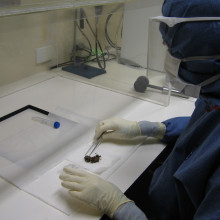
36:39 - What lived in ancient human intestines?
What lived in ancient human intestines?
with Dr Jessica Metcalf, University of Colorado Boulder
It's clear our bacteria play an important role in at least some aspects of our well-being. But have our modern lifestyles had an impact on the types of bacteria that live inside us? 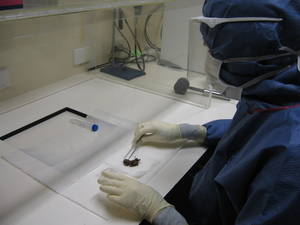 One way of looking at this is to consider the microbiomes of our ancestors; but bacteria don't tend to fossilise, which makes this a bit difficult. But Jessica Metcalf from the University of Colorado, Boulder, is not getting down in the dumps about it; or perhaps she is...
One way of looking at this is to consider the microbiomes of our ancestors; but bacteria don't tend to fossilise, which makes this a bit difficult. But Jessica Metcalf from the University of Colorado, Boulder, is not getting down in the dumps about it; or perhaps she is...
Jessica - What we can gain from studying the microbes that our ancestors had is to sort of compare it to what we have today and see what we're missing. So, we know that because of things like our widespread antibiotic use, intensive hygiene practices, and spending so much time indoors, and sort of our more high fat, high protein diet, that lack fibre, we've probably changed our gut microbiome substantially. And so, the question is, what did we use to have? How do we figure that out? One of the ways we can do that is by looking at the microbes that our ancestors had that's preserved in faecal material around the world. Faecal material is what we usually study to characterise a gut microbiome because when you poo, out comes all the microbes that are in your colon as well. And so, this gives us a really nice, easy way to understand what's in the gut. And so, we have been able to study faecal material from caves in North America and Central America, Viking latrines from England, and also occasionally, in naturally mummified human remains.
Kat - So, when you get a sample like this, how do you go about studying it? What are you looking for and how do you treat it?
Jessica - Because these faecal samples have been sitting around from anywhere from several hundred years, several thousands of years, we really worry about contamination. And so, we work with an ancient DNA lab - so, clean labs to help protect the samples from further environmental contamination and also, to allow us to really cleanly sort of remove the outer layer of these samples with like a Dremel drill and also with bleach, so that we just get the DNA out of the middle where it's most likely to have avoided contamination from soil or other environmental microbes.
Kat - What have you found out so far from studying these samples, from studying the DNA in them about what's different between our gut bugs today and those of our ancestors that live before us?
Jessica - We're finding some really, really interesting results. So, we're confirming our hypothesis that certainly, people living in western societies today are missing some microbes. And so overall, there's a lot lower diversity or number of microbes in our gut microbiomes. And so, we're finding that we're not only missing particular bacteria like a diversity of this whole group called treponema but also, different strains of bacteria that we do have, we just don't have as many different types anymore. Actually, one other really interesting finding is that it's not only the bacteria that we're missing but also, the microscopic eukaryotes. So, eukaryotes have nucleated cells like us, so eukaryotes, plants, fungi. But most eukaryotes are actually microscopic and we usually think of them as parasites. But some of these small microbe eukaryotes were probably beneficial or at least not harmful and we're almost completely missing those in western populations now.
Kat - I was going to ask, obviously, having loads of bacteria and parasites could be a good or a bad thing and we do have this assumption today that our modern life is terrible and making us sick. Do you think this difference in our microbiome from how it used to be to how things are today? For someone like me, I live in the city. Is this actually doing me harm and is it contributing to the kinds of diseases that do seem to afflict us more as modern humans?
Jessica - Well, I think the only honest answer to that is we don't really know. There are studies coming out that suggest that certainly, maybe some of the autoimmune diseases and sort of the effects on training our immune system by not having enough of these microbes may be a real phenomena. But this is incredibly complex and it's going to be really complicated to pick a part. But I think overall, we know that things like eating fibre increases the diversity of our microbes and that's most likely going to be a good thing.
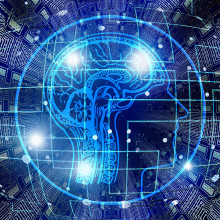
41:21 - Do gut bugs affect your brain?
Do gut bugs affect your brain?
with Professor John Cryan, University College Cork
Apart from aiding digestion, and keeping bad bugs at bay, evidence is also emerging that our intestinal microbes can also affect our behaviour and even the way the brain develops. Neuroscientist John Cryan is exploring this at University College Cork, in Ireland, and he outlined the most recent research to Chris Smith...
John - The whole concept that your gut signals to your brain might not be so new because we use it in our language like gut feelings and gut instincts. The actual pathways of this is only been slowly figured out right now and among those that we've been working on is now. In particular, there's a nerve called the vagus nerve which is very important for sending signals from the periphery to the brain. And we've shown that that's important at least for some of the effects of bacteria. We know bacteria can produce a variety of neurochemicals that can affect different aspects of physiology. Some of these chemicals that the bacteria produce if they get into the bloodstream can get to the brain and can actually influence brain function. This is another area we're working on.
Chris - So, what evidence have you got that this may genuinely be happening?
John - Most of the evidence to-date comes from studies in mice and rats, and I suppose what we got into in the first place was the fact that we found that if stress had a long term affect on the signature of these bacteria in the gut.
Also, we've shown and others have shown, if you take away bacteria and create a germ-free environment in animals, you have a very increased stress response. So therefore, having a normal stress response is dependent to having appropriate bacteria in your gut. So therefore, we ask to flip question which is really, could we modulate the stress response by targeting the bacteria within your gut?
And so we did some studies where we fed some adult mice with the specific bacteria and we found that these mice were a lot more chilled out, relaxed, and did have the same stress response. And so, when we looked at whether the vagus was involved, we show that these are all dependent on the signal to this neuronal pathway, the vagus nerve.
Chris - So, your theory might be then that the bacteria in some way adjusts the biochemistry of the gut where they are and this is picked up by the vagus nerve and relayed to the brain where that in turn alters what the brain is doing?
John - Absolutely!
Chris - So, what might be the implications then of someone taking a hefty course of antibiotics and these clearing out? Many of the healthy or so-called good bacteria that live in the gut, might that have a mood altering effect?
John - Good studies on this haven't been really carried out to be honest. That said, we've shown, and others, that the impact of antibiotics in early life can have widespread effects on physiology later in life.
We've shown that there's like an increased visceral pain, abdominal pain in animals that have been exposed to antibiotics early in life. So, the studies, if you need to take antibiotics in adulthood, really, there's nothing robust to indicate that there is a bad effect on brain and behaviour. But perhaps during more neurodevelopmentally sensitive time periods that this is going to be more robust.
Chris - Do you think then we might be able to extrapolate this to other things like breastfeeding or caesarean section? Both of which had been linked to a shift in the kinds of bugs that colonise the gut and that change in gut colonisation seems to persist into adulthood? So, experiments have been done on animals that are breastfed, or not breastfed, and they end up as adults with quite a different type of bacterial spectrum living in their intestines, same with caesarean section. Do you think there might be some repercussions from that then?
John - Absolutely! I think this is really exciting area that has gone ignored up to now. We know that especially early in life, some of the factors that as you mentioned, the mode of delivery and mode of nutrition provision are two of the biggest ways that we manipulate the gut microbiome. and so, people are beginning to look at this and try and do this mechanistically.
Indeed, we have some preliminary data to show that there are long term effects of being born. At least in animals, are being born by C-section and compared to being born by normally delivery. And the literature isn't that clear.
We know in the C-section born babies, there's an increase in asthma and allergy and maybe other autoimmune diseases. But the link with neurodevelopmental disorders isn't that clear as a yes, but it deserves more study and it's something that we're doing a lot of investigation on right now with C-section rates escalating especially elective C-section in the developing world, something we need to take a lot of caution and investigate thoroughly.
Chris - What about the question of autism? Is there any association possibly with what's going on in the intestine and autism?
John - What we found actually in our studies in mice that lacked bacteria, these are what we call germ free cells. They're the equivalent of a mouse in a bubble, like a boy in the bubble.
These animals when they grow up, we find lots of different changes in their brains and on their behaviour. These changes tend to be much more prevalent in males than females.
That's surprising. And so, that kind of thinking, well autism for example is a disorder which is 4 times more prevalent in males than females. And so, we started exploring social behaviour which is one of the key symptoms of autism and these mice with lack bacteria have clear, social deficits. So, to have normal social behaviour, we need to have normal levels of bacteria in our gut. That much is clear and then really interesting work form Caltech. They showed them in a mouse model of autism that there is differences in gut microbiota, differences in the leaky gut, and that they could reverse these really dramatically and the behaviour by giving a specific bacteria just after weaning. And so, this opens up the concept at least that there could be in the future, potentially for the development of bacterial interventions for autism.
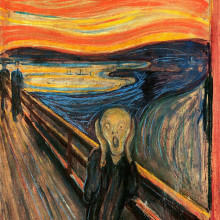
47:33 - Trans-poo-sion: the faecal transplant
Trans-poo-sion: the faecal transplant
with Professor Brendan Wren, London School of Hygeine and Tropical Medicine
Clostridium difficile is a nasty bacterium which causes over 10,000 infections per year in the UK alone. It leads to severe long-term diarrhoea and inflammation in the intestine and is a particular problem for the elderly and patients receiving antibiotics that wipe out their resident population of "good bacteria". What can be done about these infections? Recently, the idea of a faecal transplant, or "transpoosion" has been gaining traction. Microbiologist Brendan Wren, from the London School of Hygiene and Tropical Medicine explained the science behind the (rather unpleasant sounding) idea to Kat Arney...
Brendan - Well, it's quite an old idea from about 25 years ago. As you mentioned, Clostridium difficile is an organism that takes over the gut, when you take antibiotics and can cause severe disease and can be life-threatening. One of the problems is you get relapses over and over again. In desperate cases, because it's quite dramatic and desperate thing to do to try and re-establish the balance of your microbiota, is to have a faecal transplant. So essentially, to try to replace the bacteria that you've lost and re-establish the balance. Anecdotally, this has worked for quite a few years and more and more of these have been done worldwide and it's gaining traction as you mentioned.
Kat - Is this actually poo? I mean, let's do some details here. Sorry, if anyone's eating dinner. Is this poo? Which end does it go in and how does it work?
Brendan - It's poo so people may be able have their own or maybe their partners and more and more commonly now is the idea of poo banks around. So, within your own poo, you obviously have your own microbes and you need actually to start establish the balance. So yeah, it's literally that and it's in case in motion and it's given orally so it allows you to re-establish your gut microbiota.
Kat - This is kind of like a poo in a pill or sort of a poo shake?
Brendan - I guess more of a poo in a pill. I guess the issues with it are, you don't know what microbes you're putting in and potentially, it could be pointing some bad ones. Some countries, they do refuse to do it, but however, some patients are really desperate and Clostridium difficile can kill people. And back in 2004, 8,000 people in UK died. So, if you have a persistent problem with it, it's a desperate measure, but it's increasingly been used.
Kat - And you say it's increasingly being used, but what's the evidence that it actually works? Have there been clinical trials done of this yet?
Brendan - Some clinical trials have been done recently, but because it's such a desperate measure, it's hard to get higher enough numbers. So, it is more anecdotal. What we're interested in our research is we have a mouse model of Clostridium difficile and reinfection and we've been able to, in this day and age, as one of the speakers mentioned earlier, we can sequence quite easily so we can work out the content of the poo, and in terms of bacteria, that way, what we want to do is to get a magic cocktail if you like of bacteria that we know don't cause disease. With this cocktail, we'd be able to re-establish mark flow in a more defined approach rather than a poo pill.
Kat - Yeah, because it does sound kind of gross. I mean, we hear all the time about the adverts, the probiotics to help our healthy bacteria. Are people quite reluctant about the idea of either a poo transplant or a bacterial transplant in this kind of slightly more cleaned up way?
Brendan - What is a certain yuck factor about a poo pill but people are desperate. If it's going to save their lives, they'll do it. that's why more and more of these have been done because Clostridium difficile has tripled over the last few years in our hospitals, particularly for persistent infections then it's one possibility.
Kat - Just very briefly to wrap up, we sometimes hear about the idea that maybe you could transfer poo from different people, share your microbiome and that might change other characteristics. For example, your weight or something like that. Is there any evidence on that very briefly?
Brendan - There's not really evidence yet on that. As your previous speakers mentioned, your microbiome being associated with everything to do with diet and health cancer, etc. But we're only at the early stages and I think with the new technology and being able to sequence the work of the actual bacteria there then we have more rational approach but I'm microbiome.
Kat - So, my cunning plan to find a thin person and extract some of their poo and then eat it is not going to work for me right now.
Brendan - I wouldn't recommend it.
Kat - It does sound fantastic. Are there hopes for larger trials for this in the future?
Brendan - Yeah, for certainly in the future and particularly in the US and lots of companies are setting up in this particular area. Poo banks will be around I'm sure. You'll have not just your genome sequenced but the genomes of your gut bacteria. So, it's going to take off I'm sure.
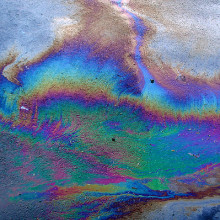
53:18 - Why does petrol create a rainbow on water?
Why does petrol create a rainbow on water?
Danielle finds out why petrol creates a rainbow effect when in contact with water, and how the behaviour of light can create all these colours, with the help of Professor Jeremy Baumberg...
Jeremy - The organic molecules in petrol float on top of water since they're hydrophobic, which means they don't like to mix with water. The layer of petrol spreads out across the water but not evenly. In some places, it's only one molecule deep while in others it's much thicker. Light reflects from both the top petrol surface but also the lower boundary between petrol and water.
Danielle - This means that some light rays, ones that bounce off the petrol-water boundary, have to travel further than the rays that reflect directly off the surface of the petrol.
Making this longer journey can mean that a light wave reflected off the petrol water boundary has its peaks and troughs out of alignment with the waves that reflect directly off the surface of the petrol.
When this happens, the two waves can cancel each other out, leaving a dark patch. But because the light that comes from the sun is white light, it contains all the different colours of the rainbow mixed together. The distances between the peaks and troughs of the waves in red light are much bigger than in blue light. This means that while light waves of some colours will meet at the petrol surface out of alignment and cancel out, light of other colours will arrive back at the surface "in sync" where they can add together and make a brighter patch corresponding to that colour.
Jeremy - Different colours of light have different wavelengths. So the reflected waves from the lower boundary come back with peaks and troughs slightly shifted depending on how far they had to travel through the petrol layer.
Danielle - And because the thickness of the oil varies across the surface, different places look different colours. Thank you professor Baumberg for that colourful answer.










Comments
Add a comment